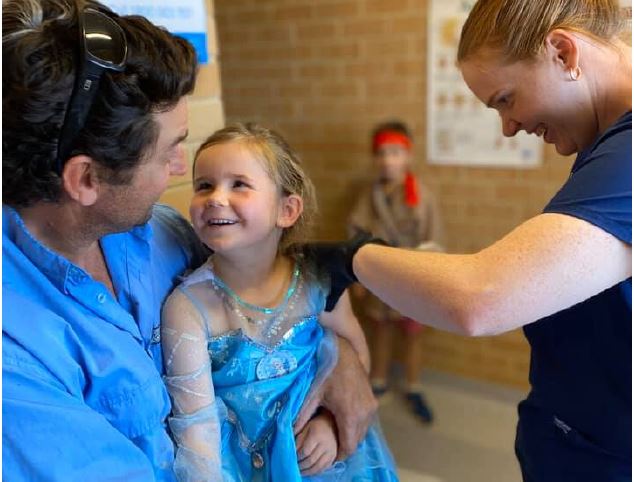Search
Research
Does a major change to a COVID-19 vaccine program alter vaccine intention? A qualitative investigationOn 8th April 2021, the Australian Technical Advisory Group on Immunisation (ATAGI) made the Pfizer-BioNtech (Comirnaty) vaccine the “preferred” vaccine for adults in Australia aged < 50 years due to a risk of thrombosis with thrombocytopenia syndrome (TTS) following AstraZeneca vaccination. We sought to understand whether this impacted COVID-19 vaccine intentions.
Research
Revaccination with Bacille Calmette-Guérin (BCG) is associated with an increased risk of abscess and lymphadenopathyThe reported frequency and types of adverse events following initial vaccination and revaccination with Bacille Calmette-Guérin (BCG) varies worldwide. Using active surveillance in a randomised controlled trial of BCG vaccination (the BRACE trial), we determined the incidence and risk factors for the development of BCG injection site abscess and regional lymphadenopathy.
Research
Western Australian health care workers’ views on mandatory COVID-19 vaccination for the workplaceHealth care workers (HCWs) are at an increased risk of catching and spreading Coronavirus Disease 2019 (COVID-19) compared with the general community, putting health systems at risk. Several jurisdictions globally have mandated or are looking to mandate COVID-19 vaccines for this cohort, but little is known about the acceptability of this measure, especially in different contexts, and there is little qualitative data to explore nuance, depth, and the reasons behind HCWs’ opinions.
Research
Preventing severe influenza in Australian infants: Maternal influenza vaccine effectiveness in the PAEDS-FluCAN networks using the test-negative designChristopher Blyth MBBS (Hons) DCH FRACP FRCPA PhD Centre Head, Wesfarmers Centre of Vaccines and Infectious Diseases; Co-Head, Infectious Diseases
Research
Bacillus Calmette-Guérin vaccination for protection against recurrent herpes labialis: a nested randomised controlled trialRecurrences of herpes simplex virus (HSV) in the orofacial region (herpes labialis or cold sores) impact quality-of-life. We aimed to study whether the bacille Calmette-Guérin (BCG) vaccine can attenuate cold sore recurrences through off-target immunomodulatory effects.
Research
The full health, economic, and social benefits of prospective Strep A vaccinationRecent research has documented a wide range of health, economic, and social benefits conferred by vaccination, beyond the direct reductions in morbidity, mortality, and future healthcare costs traditionally captured in economic evaluations.
Research
Safety of BCG vaccination and revaccination in healthcare workersBCG vaccination and revaccination are increasingly being considered for the protection of adolescents and adults against tuberculosis and, more broadly, for the off-target protective immunological effects against other infectious and noninfectious diseases. Within an international randomized controlled trial of BCG vaccination in healthcare workers (the BRACE trial), we evaluated the incidence of local and serious adverse events, as well as the impact of previous BCG vaccination on local injection site reactions (BCG revaccination).
Research
A phase 3 study of safety and immunogenicity of V114, a 15-valent pneumococcal conjugate vaccine, followed by 23-valent pneumococcal polysaccharide vaccine, in children with HIVTo evaluate the safety and immunogenicity of V114 [15-valent pneumococcal conjugate vaccine (PCV) containing serotypes 1, 3, 4, 5, 6A, 6B, 7F, 9 V, 14, 18C, 19A, 19F, 22F, 23F, 33F], followed by 23-valent pneumococcal polysaccharide vaccine (PPSV23) 8 weeks later, in children with HIV.

News & Events
Landmark Australian influenza collaboration finalist for Eureka PrizeInfectious disease researchers who used a decade of scientific evidence to advocate for a nationwide childhood influenza immunisation policy have earned a finalist position at the country’s most prestigious science awards – the Australian Museum Eureka Prizes.

News & Events
Meningococcal vaccine provides extra protection for bubsIn 2017, a steep rise in cases of meningococcal disease caused by the W strain sparked a wave of concern for parents in Western Australia.
